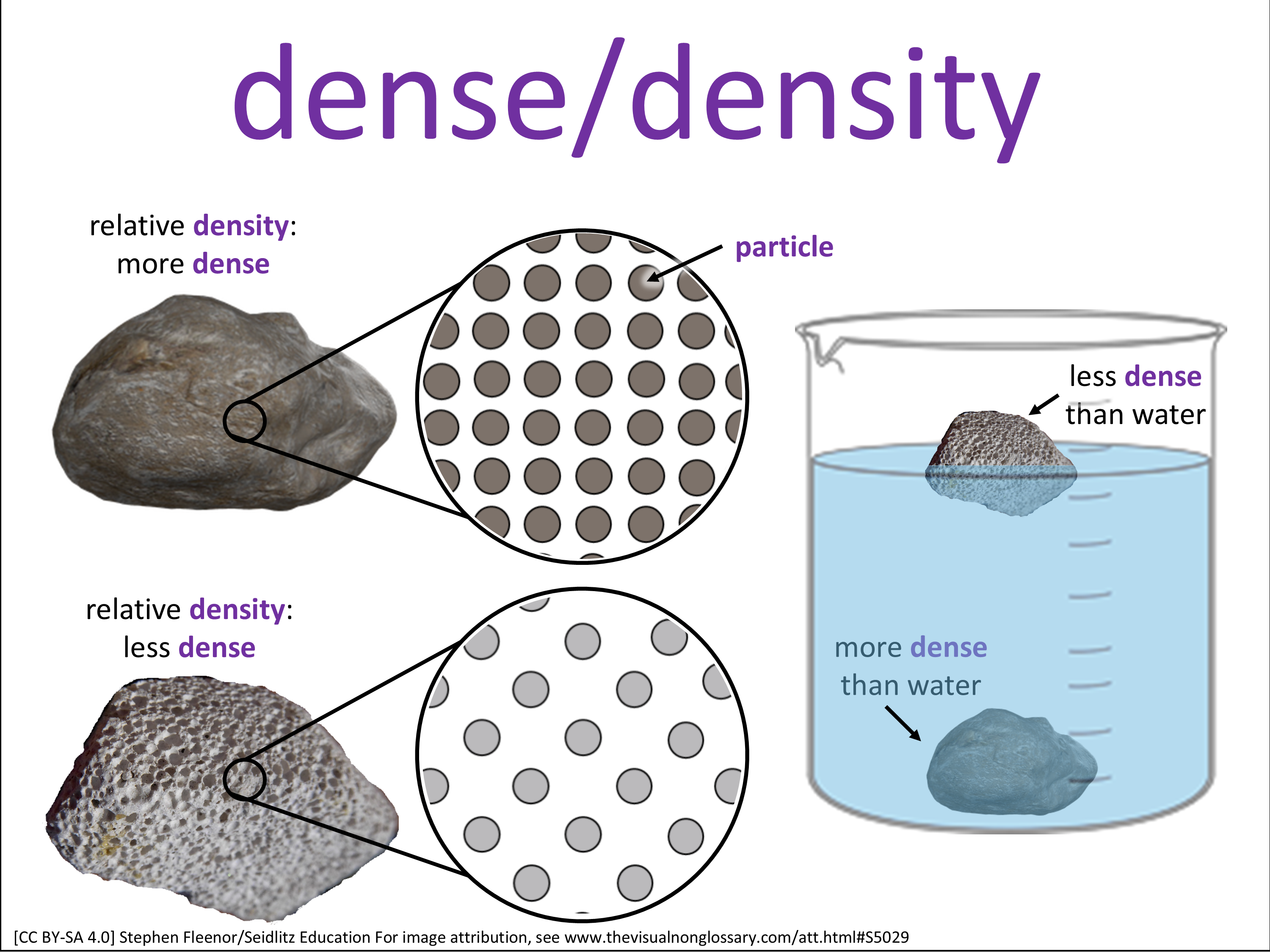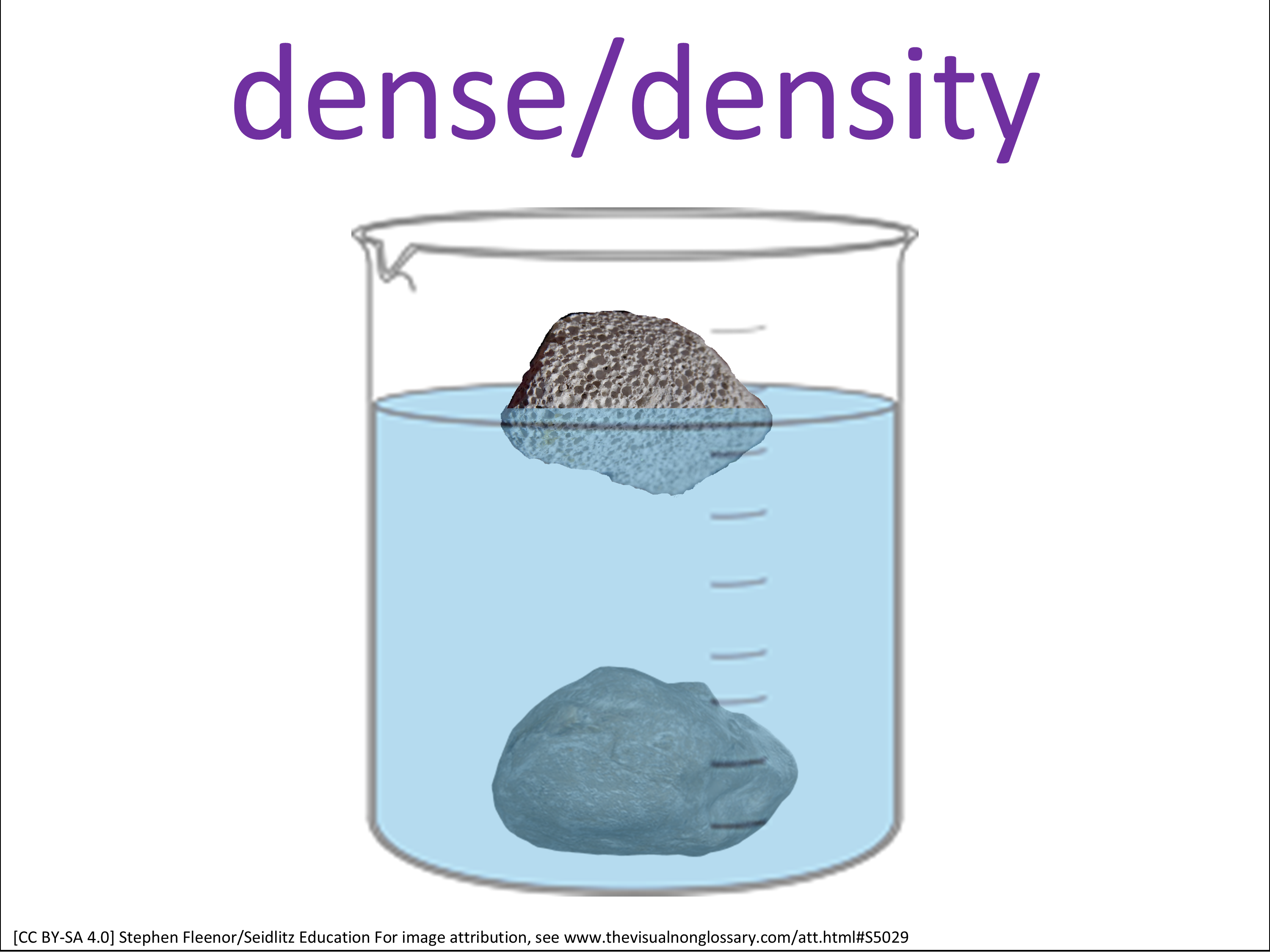TEKS:
| 4th: | 4.6(A) |
| 5th: | 5.6(A) |
| 6th: | 6.6(D) |
NGSS:
| 5th: | 5-PS1-3 |
| MS: | MS-PS1-2 MS-ESS2-6 |
- Visual
- Word wall visual
- Lesson Plan
- Lesson Materials
Observational
What does it mean for something to be more or less dense?
If something is more dense, … If something is less dense, …Relational
How is density related to mass?
Density is related to mass because…Inferential
Why is it important to know the relative density of matter?
It is important to know the relative density of matter because…
Some objects sink in water while others float.
Objects that are more dense are packed with more particles.
Less dense objects take up more space with fewer particles.
Relative density can be compared using water as a reference point.
After the observational question, randomly call on one or more students to share what they or their partner answered. Then ask the class, “Did anyone notice…?” using the suggestions above or anything else you’ve noticed.
Why do some heavy objects float while lighter ones sink?
Can two objects of the same size have different densities?
How does mass affect whether something floats?
Do gases and liquids also have different densities?
Can density change if you cut an object into smaller pieces?
After students have shared what they notice, ask the class, “Did anyone wonder…?” using the suggestions above or anything else you might think is interesting or relevant to the lesson.
To the observational question, What does it mean for something to be more or less dense?
LOW-LEVEL
If something is more dense, it sinks. If something is less dense, it floats.
HIGH-LEVEL
If an object's relative density is more dense, it has more particles packed into a small space. If an object's relative density is less dense, it has fewer particles spread out.
Emphasize and celebrate each student’s use of the key vocabulary to support a culture of “no wrong answers.”




Stephen
If students answer the last question "one sinks and one floats," you can follow up with "what if both sunk? How could you tell which one is more dense?"
11-30-21
Stephen
One answer to the above question might be, "the one that sinks faster is more dense."
11-30-21
Gunjeet Bhatt
Word wall visual not found for density
01-23-24
Stephen Fleenor
Whoops! Fixed it, thanks for letting us know!
01-23-24
Jennifer Nguyen
4th Grade TEKS mentions Relative Density directly. Can we get a lesson about the relationship between water and objects?
07-25-24
Stephen Fleenor
Absolutely! Search for dense/density and you'll find a 4th-Grade visual for "relative density."
10-19-24